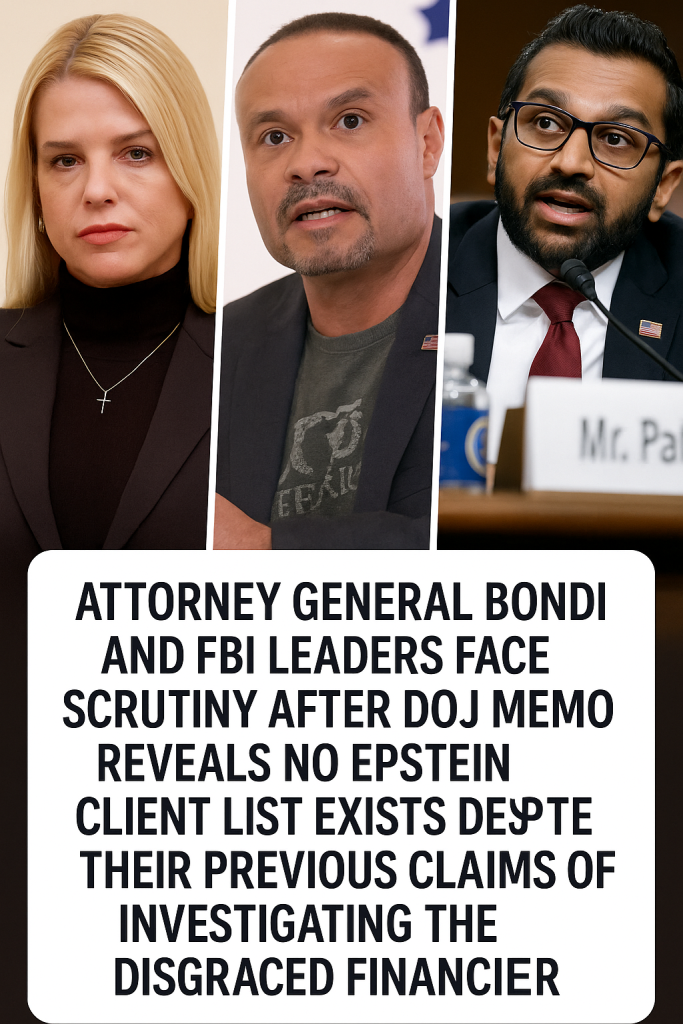The Department of Justice (DOJ) has sparked fresh controversy surrounding ongoing investigations into the late financier Jeffrey Epstein, as a recently released memo states no client list exists—directly contradicting previous claims made by Attorney General Bondi and FBI leadership.
For years, public and legal scrutiny has hovered over the high-profile Epstein case, which exposed a vast network of trafficking and abuse involving some of the world’s most powerful individuals. Calls for transparency escalated as officials vowed to uncover all figures connected to Epstein’s illicit activities. However, a memo circulated among senior DOJ officials in April 2024 has thrown those assurances into question.
The document reveals that despite earlier public statements suggesting the existence of an “Epstein client list,” no such list has ever been found or compiled by investigators. Attorney General Bondi had consistently asserted that her office was actively probing names linked to Epstein in his final years and that the FBI was deeply involved in tracking potential co-conspirators. This recent disclosure runs counter to those assertions, raising serious doubts about the thoroughness and transparency of the investigations under her watch.
Critics argue that the mismatch between Bondi’s declarations and the DOJ memo undermines public trust and suggests possible obfuscation or mismanagement at the highest levels of law enforcement. Some legal experts believe the discrepancy could reflect systemic issues within the investigative process, potentially influenced by the high-profile nature of Epstein’s network.
FBI leaders are also facing heightened scrutiny amid this revelation. Previously, the FBI touted its commitment to exposing all individuals connected to Epstein’s crimes, often referencing intelligence efforts focusing on potential “clients”. The absence of any compiled or verified client list now calls into question the depth and efficacy of those efforts.
Lawmakers and advocacy groups demanding justice for Epstein’s victims have called for congressional hearings to clarify the DOJ’s role and ensure accountability. They emphasize the need for full disclosure of all investigative materials and for an independent review to assess whether critical evidence was overlooked or withheld.
Attorney General Bondi has issued a statement acknowledging the DOJ memo but maintaining that investigations are ongoing and that all credible leads are being pursued. Still, critics remain unconvinced, noting that the public deserves concrete evidence of progress beyond vague commitments and conflicting internal documents.
Transparency advocates highlight that the Epstein case remains a litmus test for the U.S. justice system’s ability to confront entrenched power and deliver accountability, especially when high-profile figures are involved. The revelation of no existing client list not only complicates efforts to bring others to justice but also deepens suspicion about possible institutional failures or protective shielding by authorities.
As calls for further investigation grow louder, the DOJ faces mounting pressure to clarify the situation, provide a full accounting of what is known, and explain why prior public narratives diverged from the internal facts. The Epstein saga, long marked by mystery and intrigue, now enters a new, contentious chapter.
What remains clear is that uncovering the full scope of Epstein’s network demands unwavering transparency and vigilance going forward—and this latest memo adds urgency to those demands.



